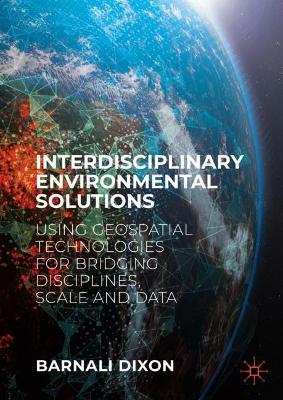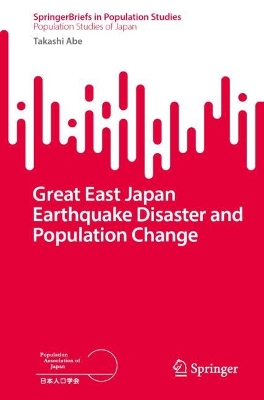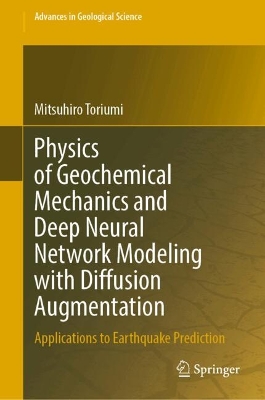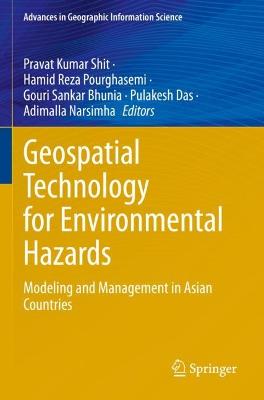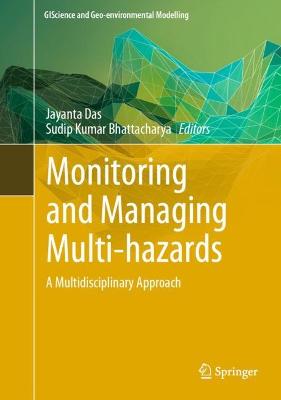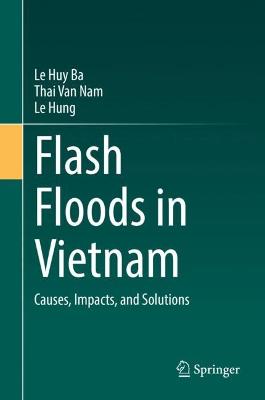Advanced GIScience in Hydro-Geological Hazards
 portes grátis
portes grátis
Advanced GIScience in Hydro-Geological Hazards
Applications, Modelling and Management
Rahman, Md. Rejaur; Rahman, Atiqur; Saha, S. K.
Springer International Publishing AG
02/2025
394
Dura
9783031761881
Pré-lançamento - envio 15 a 20 dias após a sua edição
Descrição não disponível.
GIScience and Earth observation Technology in Hydro-Geological hazard Analysis-An Overview.- Application of Advanced Geoinformation Science-A Disaster Risk Reduction Perspective.- New Paradigms of Decision Support Systems through Applications Leveraging Earth Observations and Machine Learning Approaches.- Soil erosion susceptibility modelling using machine learning in Guwahati urban watershed.- Flood vulnerability assessment in Jamuna (Brahmaputra) river basin, Bangladesh using remote sensing data, frequency ratio and machine learning based geospatial approach towards management strategies.- Introducing Autoencoder-Convolutional neural network for landslide susceptibility modelling in Kalimpong hill.- Artificial Neural Networks for combined forecasting of Tropical Cyclone track and intensity in the Bay of Bengal.- Geospatial approach to assess possible impact of groundwater abstraction in Bharatpur metropolitan city, Nepal.- Application of aerial photographs to monitor the dynamicsof fluvial tidal island and coastal erosion hazard in the Sundarbans delta plain of Bangladesh.- RS and GIS modelling for disaster management: Opportunities and challenges-A case study from Kerala, India.- Coastal Area Vulnerability to Cyclone Hazard-A Geoinformation and IPCC approach based study.- Spatial and Temporal Distribution of Drought in Bangladesh Using Novel China Z Index.- Livelihood vulnerability modelling with deep learning in erosion and flooding induced river islands in Ganga River corridor.- Assessment of soil erosion and landslide hazards in Rohingya refugee areas of Bangladesh: An integrated remote sensing and field observation approach.- Geospatial Analysis of River Bank Erosion-Accretion and Land Use Change of Teesta River, Bangladesh using Fuzzy ARTMAP Neural Network.- Landslides Vulnerability Assessment using Fuzzy logic based Spatial Multi-criteria Evaluation (Fuzzy-SMCE)-A Case Study from Hill Tract Districts, Bangladesh.- Impact of wetland transformation on fishing community in floodplain of Tangan River.- Multi-hazard risk assessment using Geo-statistical and Machine Learning Algorithm.- GNSS remote sensing in disaster management.- Land subsidence estimation using SAR time series data.
Este título pertence ao(s) assunto(s) indicados(s). Para ver outros títulos clique no assunto desejado.
Hydro-geological Hazards;Geospatial Technology;Remote Sensing;GIS;Artificial Intelligence;Machine Learning;Support Vector Machine;Deep Learning;Artificial Neural Networks;Hazard;Vulnerability;Susceptibility;Floods;Landslide;Tropical Cyclone;Groundwater;Erosion;Drought;Wetlands;Land Subsistence
GIScience and Earth observation Technology in Hydro-Geological hazard Analysis-An Overview.- Application of Advanced Geoinformation Science-A Disaster Risk Reduction Perspective.- New Paradigms of Decision Support Systems through Applications Leveraging Earth Observations and Machine Learning Approaches.- Soil erosion susceptibility modelling using machine learning in Guwahati urban watershed.- Flood vulnerability assessment in Jamuna (Brahmaputra) river basin, Bangladesh using remote sensing data, frequency ratio and machine learning based geospatial approach towards management strategies.- Introducing Autoencoder-Convolutional neural network for landslide susceptibility modelling in Kalimpong hill.- Artificial Neural Networks for combined forecasting of Tropical Cyclone track and intensity in the Bay of Bengal.- Geospatial approach to assess possible impact of groundwater abstraction in Bharatpur metropolitan city, Nepal.- Application of aerial photographs to monitor the dynamicsof fluvial tidal island and coastal erosion hazard in the Sundarbans delta plain of Bangladesh.- RS and GIS modelling for disaster management: Opportunities and challenges-A case study from Kerala, India.- Coastal Area Vulnerability to Cyclone Hazard-A Geoinformation and IPCC approach based study.- Spatial and Temporal Distribution of Drought in Bangladesh Using Novel China Z Index.- Livelihood vulnerability modelling with deep learning in erosion and flooding induced river islands in Ganga River corridor.- Assessment of soil erosion and landslide hazards in Rohingya refugee areas of Bangladesh: An integrated remote sensing and field observation approach.- Geospatial Analysis of River Bank Erosion-Accretion and Land Use Change of Teesta River, Bangladesh using Fuzzy ARTMAP Neural Network.- Landslides Vulnerability Assessment using Fuzzy logic based Spatial Multi-criteria Evaluation (Fuzzy-SMCE)-A Case Study from Hill Tract Districts, Bangladesh.- Impact of wetland transformation on fishing community in floodplain of Tangan River.- Multi-hazard risk assessment using Geo-statistical and Machine Learning Algorithm.- GNSS remote sensing in disaster management.- Land subsidence estimation using SAR time series data.
Este título pertence ao(s) assunto(s) indicados(s). Para ver outros títulos clique no assunto desejado.

